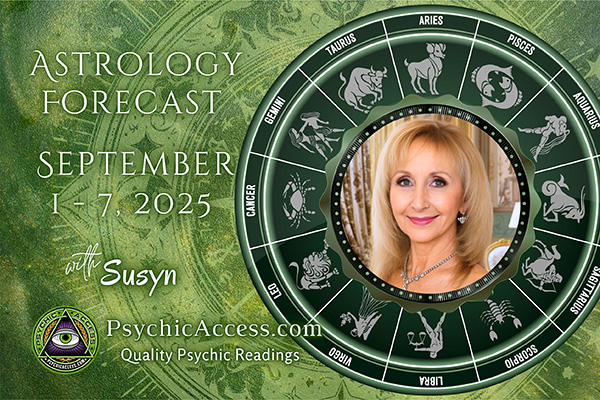September 2025 Tarot Outlook: Perspectives on the Queen of Cups
 This month, we are influenced by the peaceful and soulful essence of the Queen of Cups. Her emergence as the card of the month sets the atmosphere for a time of emotional clarity, empathetic connection, and heightened intuition. This is not a moment to rush or force; instead, it is a sacred pause that calls us to turn inward.
This month, we are influenced by the peaceful and soulful essence of the Queen of Cups. Her emergence as the card of the month sets the atmosphere for a time of emotional clarity, empathetic connection, and heightened intuition. This is not a moment to rush or force; instead, it is a sacred pause that calls us to turn inward.
The Queen of Cups personifies the wisdom of the heart. She recognizes that true power is found not in control, but in compassion. Her energy encourages us to soften where we have erected barriers, providing emotional nourishment to ourselves and those around.
This month, we are urged to listen deeply, not only to others but to the whispers of our own spirit. The next four weeks focus on emotional intelligence, healing, and inner alignment. We are reminded that empathy is a superpower and that our intuition serves as one of our most vital guides.
Traditionally, the Queen of Cups is portrayed seated upon a throne by the sea, symbolizing her profound emotional awareness and intuitive depth. The waters surrounding her signify the subconscious mind and the domain of emotions. Her throne is embellished with images of marine life, emphasizing her bond with the watery emotional realm and her comfort in navigating its depths.
In her grip, she holds a covered, ornate cup, distinct from others in the Tarot. This sealed cup hints at mystery, emotional containment, and sacred inner knowledge. It also represents her ability to create space, maintain confidences, and respect emotional boundaries. She gazes focused on the cup, undistracted by the waves behind her, illustrating her capacity for concentrated emotional awareness and inner contemplation. The Queen of Cups teaches us that strength can be tranquil and that emotional resonance can lead to profound spiritual insights.
In many respects, this is a month of rejuvenation. Whether we find ourselves emotionally drained, spiritually distracted, or relationally distanced, the Queen of Cups beckons us back to center. She does not seek answers, but rather invites inquiries: What truly speaks to your heart? Where must you soften, forgive, and listen more intently?
Here are the primary areas of focus for this month:
Health & Well-Being
This month, your health depends on emotional equilibrium and self-nurturance. The Queen of Cups promotes a restorative approach to wellness. Emphasize activities that soothe the nervous system and provide emotional relief, such as meditation, gentle yoga, nature walks, or journaling. If you’ve been pushing through stress or neglecting emotional fatigue, now is the moment to pause and heed your body’s subtle signals.
If your emotions feel burdensome, therapy, energy healing, or creative outlets like art or movement can aid in release and realignment. Hydration and rest are especially crucial this month; your physical vitality is closely linked to your emotional state. September calls for intuitive self-care: What do you need to feel emotionally secure and supported? Begin from there.
Money & Finances
The Queen of Cups brings a gentle, intuitive perspective to financial matters. You may feel more attuned to the emotional currents shaping your spending habits. Are you purchasing comfort or investing in what genuinely aligns with your values? This is an apt moment to reevaluate your financial choices with emotional satisfaction in mind.
Rather than rushing decisions, practice financial discernment. Seek counsel from someone you trust if you feel uncertain. The Queen of Cups does not pursue wealth but values stability that nurtures well-being. Spend thoughtfully, considering how your resources can cater to both emotional and material needs. Long-term planning that respects your heart’s truth will yield greater contentment than fleeting gains.
Career & Business
September may usher in a calmer, more introspective energy in professional realms. If you work in fields involving caregiving, creativity, or emotional labor, you might find your purpose deepening. The Queen of Cups favors vocations that honor authenticity and human connection. If your current role feels devoid of meaning, you may sense a growing inclination toward more heart-centered endeavors.
Use this month to contemplate what fulfills you. Does your work resonate with your emotional values? Avoid imposing changes, but pay attention to any intuitive hints. This is also a powerful opportunity to strengthen ties with coworkers or clients through empathy and active listening. Lead with kindness, and integrity will follow.
Love & Relationships
Relationships take precedence this month. The Queen of Cups teaches us to engage with emotional presence, listen more than we speak, and create space without judgment. Whether you are in a partnership or single, the emphasis is on emotional depth and vulnerability. Superficial connections will feel less satisfying, and you may find yourself longing for intimacy founded on trust and understanding.
If you are in a relationship, this is a moment to foster emotional closeness. Share your feelings openly and encourage your partner to do likewise. If conflicts arise, respond with compassion rather than defensiveness. For those who are single, this is an opportune month to attract a partner who resonates with your emotional truth. Authenticity is magnetic right now.
Personal Growth
The Queen of Cups serves as your guide for spiritual and emotional development. Personal growth this month stems from embracing your sensitivity rather than concealing it. You are learning to honor your inner world as a sacred space. Allocate time for quiet reflection, spiritual practices, or creative expression. Allow your intuition to guide you.
This is a wonderful month to release outdated emotional patterns, forgive past wounds, and reconnect with your soul’s deeper aspirations. Journaling, dream work, or engaging in water-based rituals can facilitate this journey. Growth may not manifest dramatically but will be profoundly transformative. Let your heart be your guide, and trust where it leads.
This month, the Queen of Cups presents us with a chalice filled with wisdom, compassion, and intuitive strength. By tuning in, softening, and leading with emotional grace, we enable healing and insight to direct our paths. Let this be a month of sacred self-care, genuine connection, and heart-centered living.
|
Zondra is a highly accomplished Intuitive and Life Coach, utilizing her unique talents honed over the past two decades. Zondra acts as the remote control in her clients’ hands, helping them choose the best channel for their desired outcomes to manifest. A 5th generation psychic, her inherent psychic abilities and inquisitive nature have led her to explore and master NLP and Mental Training, integrating coaching techniques that harmonize beautifully with Tarot. She has provided advice to many in both national and international markets and has experience serving companies in Portugal, the UK, Ireland, Norway, Sweden, Denmark, Brazil, and the US. She leverages her experience to assist others in finding pathways to make significant and positive changes in their lives. So, if you’re ready to change your life channel quickly, you’ve found the home of a compassionate, non-judgmental practitioner, skilled in helping you manifest the existence you aspire to live. Zondra can be contacted at PsychicAccess.com. |
As we approach September 2025, the Queen of Cups appears as an essential figure in tarot readings. Symbolizing compassion, intuition, and emotional richness, the Queen of Cups provides significant insights and direction for the upcoming days.
In tarot readings, the Queen of Cups is commonly linked with nurturing and caring energy. She embodies empathy, sensitivity, and understanding, serving as a symbol of emotional support and solace. This card urges us to immerse ourselves in our feelings and to approach circumstances with kindness and compassion.
In September 2025, the Queen of Cups may surface in your tarot readings to encourage you to trust your intuition and heed your inner voice. This is a moment to be attuned to your emotions and to value them as crucial sources of guidance. The Queen of Cups inspires you to remain open and receptive to the messages your heart seeks to express.
This card also points to the necessity for self-care and self-appreciation. Dedicate time to nurture yourself and prioritize your emotional well-being. Connect with your deepest desires and aspirations, allowing yourself to feel authentically and profoundly. By valuing your emotions and tending to yourself, you can foster a sense of inner tranquility and harmony.
In relationships, the Queen of Cups signifies a phase of emotional connection and understanding. This is an occasion to articulate your feelings candidly and to listen with empathy and compassion. Whether you are in a romantic relationship, friendship, or family connection, the Queen of Cups motivates you to engage in interactions with love and kindness.
Overall, the Queen of Cups conveys a message of emotional healing and growth in September 2025. By embracing your feelings and connecting with your inner wisdom, you can navigate difficulties with grace and compassion. Trust in the guidance of the Queen of Cups, and allow her nurturing energy to assist you on your path toward emotional fulfillment and well-being. Continue reading













